Imágenes, democracia, comunicaciones y bases de datos: Seis adjudicaciones de Fondecyt 2023 para investigadores del IMFD
Enero, 2023.- Seis trabajos de investigadores del Instituto Milenio Fundamentos de los Datos recibieron la adjudicación de los fondos Fondecyt para 2023. Estos financiamientos son entregados por la Agencia Nacional de Investigación y Desarrollo, ANID, para promover la investigación de base científico-tecnológica en las diversas áreas del conocimiento, mediante el financiamiento de proyectos de investigación de excelencia, orientados a la producción de conocimiento.
Los investigadores IMFD que se adjudicaron los fondos son Benjamín Bustos, académico del Departamento de Ciencias de la Computación de la Universidad de U. Chile; Juan Pablo Luna, académico del Instituto de Ciencia Política y la Escuela de Gobierno de la P. Universidad Católica; Denis Parra, académico del Departamento de Ciencia de la Computación de la P. Universidad Católica; Gonzalo Navarro, académico Departamento de Ciencias de la Computación de la Universidad de U. Chile; Cristian Riveros, académico del Departamento de Ciencia de la Computación de la P. Universidad Católica; y Sebastián Valenzuela, académico de la Facultad de Comunicaciones de la P. Universidad Católica.
Procesamiento de imágenes
El proyecto de Benjamín Bustos, académico del DCC U. Chile, trabaja en el área de la arqueología digital, realizando análisis de símbolos en objetos de cerámica, que son escaneados en 3D. En esta investigación, se propone el diseño, desarrollo y evaluación de algoritmos que permitan etiquetar en forma automática los patrones que aparecen en cerámica antigua, basándose en el trabajo de Kunisch en su libro «Ornamente Geometrischer Vasen: Ein Kompendium», en donde define una taxonomía de las etiquetas que pueden aparecer en cerámica antigua. Para Benjamín Bustos, esta adjudicación permitirá avanzar en el proyecto: “ Esperamos investigar algoritmos que permitan identificar en forma automática o semiautomática los patrones que aparecen dibujados en cerámica antigua o también en otros contextos como el arte rupestre”, y destaca el importante trabajo de colaboración desarrollado con investigadoras e investigadores de Antropología y Arqueología con quienes realizaron un workshop de colaboración, lo que hace que “este proyecto se torne ahora más interesante dadas las posibilidades de poder probar los métodos y algoritmos que desarrollaremos con nuevos datos y en contextos locales”.
También en el área de procesamiento de imágenes con algoritmos, la investigación interdisciplinaria de Denis Parra, académico del DCC UC, utiliza técnicas de deep learning para el reconocimiento de imágenes médicas, lo que permite optimizar los tiempos de diagnóstico en radiología, creando herramientas de gran utilidad para el mundo de la salud. Para el investigador, esta adjudicación representa “una gran satisfacción, pero principalmente un impulso que esperábamos para continuar la investigación que ya estamos realizando hace un par de años sobre generación de reportes radiológicos a partir de imágenes médicas. Este proyecto es interdisciplinario porque involucra el desarrollo de algoritmos de IA bajo el escrutinio de médicos, cuyo rol en este proyecto lo toma la co-directora Cecilia Besa de Radiología UC. ”Como objetivo, esperan mejorar la capacidad de generar reportes en español, ya que mucha de la tecnología actual para estos modelos está solo disponible en inglés.
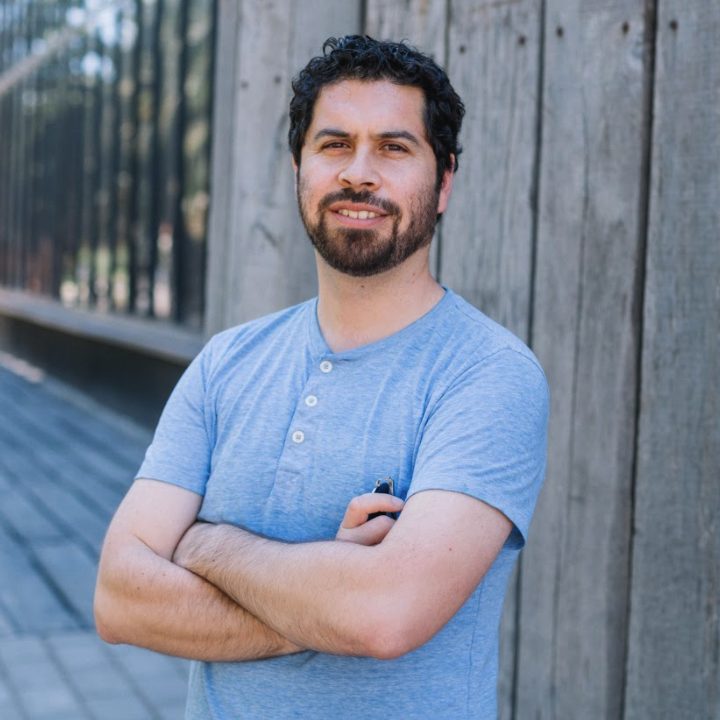
Estudiando democracias y comunicaciones con datos
Con la investigación “Análisis de los repertorios informativos de los usuarios de plataformas sociales y su relación con los conocimientos de la actualidad noticiosa”, el investigador IMFD y académico de la Facultad de Comunicaciones de la P. Universidad Católica, Sebastián Valenzuela, busca analizar los repertorios informativos de los usuarios de plataformas sociales en Chile y evaluar la incidencia de estos repertorios informativos en tres dimensiones del conocimiento noticioso: retención, comprensión y autoconfianza. “Una premisa fundamental de la teoría democrática es que los medios deben proveer de información precisa sobre la actualidad y que los ciudadanos deben tener una comprensión suficiente de los asuntos públicos para poder tomar decisiones con conocimiento de causa y participar eficazmente: Hoy son los principales medios empleados por la población en Chile para informarse de la actualidad, las plataformas sociales como Facebook, Instagram, WhatsApp, YouTube y Twitter. Pero no está claro que estos medios provean de contenido relevante y veraz, como lo indica el fenómeno de la desinformación”.
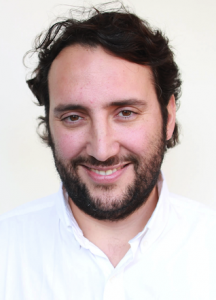
En tanto, la investigación de Juan Pablo Luna, académico de la Escuela de Gobierno y el Instituto de Ciencia Política PUC, indaga en las crisis de las democracias de las sociedades occidentales. El estudio se enfoca en los casos de Bolivia, Chile, Ecuador, Paraguay, Uruguay, y usa los casos de Francia, Alemania y Estados Unidos como control. “Es una posibilidad de entender en mayor profundidad el tipo de crisis que viven las democracias contemporáneas hoy, haciendo énfasis en factores de demanda: lo que la sociedad espera de la política; por sobre factores de oferta (como liderazgo político, factores institucionales) que son usualmente enfatizados por la literatura reciente”, explica Luna. El objetivo es poder consolidar un enfoque que recupere insights tradicionales de la economía y sociología política para entender crisis de la democracia y eventualmente sus potenciales remedios.
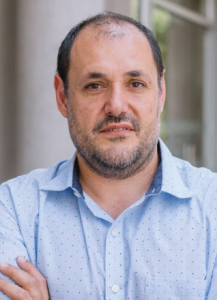
Estructuras de datos robustas y algoritmos para grandes cantidades de datos
En “Compact Data Structures for Graph Databases”, Gonzalo Navarro, académico del DCC U. Chile y quien recientemente fue reconocido como Fellow de la ACM, profundiza en el trabajo en bases de datos de grafos. “Este tipo de bases de datos -entre las cuales está por ejemplo, Wikidata- se están popularizando como mecanismos más flexibles que el modelo relacional tradicional para representar información”, explica el investigador. Esta flexibilidad viene de la mano de lenguajes de consulta más poderosos, y donde responder esas consultas más complejas es más demandante en términos de recursos. “Mi trabajo reciente demuestra que las estructuras de datos compactas, una rama que se ha venido consolidando desde hace pocas décadas y que combina la teoría de la información con las estructuras de datos, pueden ser una buena respuesta a este problema. En el proyecto propongo continuar con esta línea de trabajo, para pasar de pruebas de concepto a soluciones completas que puedan reemplazar completamente a los sistemas actuales que manejan bases de datos de grafos. Esto involucra utilizar la funcionalidad que proveen las estructuras compactas para mejorar más el desempeño de las soluciones actuales, integrarlas en sistemas reales, extender las soluciones a consultas y a planes de consulta más generales, a permitir dinamismo, soportar analítica de grafos, y a investigar en nuevas estructuras compactas que puedan ofrecer incluso mejor desempeño que las que he considerado hasta el momento”.
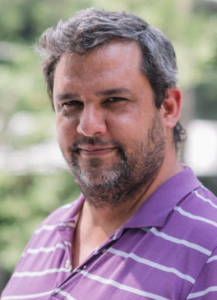
El desafío que representa la enorme cantidad de datos que se generan actualmente, por ejemplo en el tráfico de internet, redes sociales, predictores de climas o sensores, es el foco de la investigación de Cristian Riveros, académico del DCC UC, “Constant-delay algorithms for Complex Event Recognition (CER)”. Los sistemas CER surgen como una respuesta para el procesamiento rápido de grandes flujos de datos, dando respuestas oportunas a consultas que se realicen a los sistemas. En este proyecto, se propone estudiar los algoritmos que se utilizan en estos sistemas, su viabilidad y límites, para así definir cuando pueden ser utilizados y cuando no.
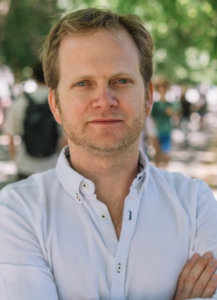
La diversidad de proyectos y temas que abordan estas investigaciones es un reflejo de la universalidad del trabajo con datos que se desarrolla en el instituto, como también, de la interdisciplinariedad que se promueve de forma activa en la comunidad de investigadores e investigadoras. Los Fondecyt se enfocan especialmente en proyectos que conduzcan a nuevos conocimientos o aplicaciones, por lo que estas adjudicaciones también reconocen el valor académico y social de las investigaciones seleccionadas.
